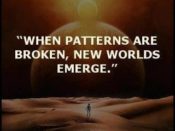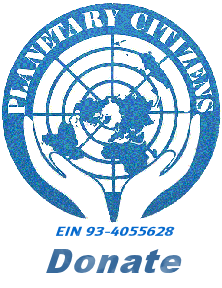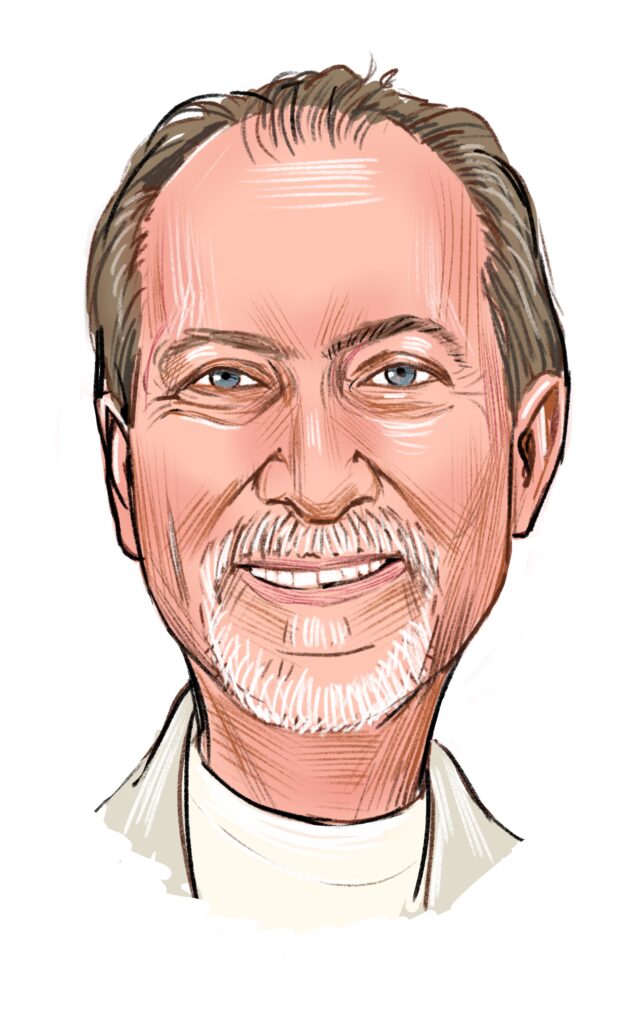What would it take for the rapid change necessary? The challenge to change is upon us. On national levels the activity would necessarily include how to work together better, beyond borders and with purposeful collaboration. Now that we have an interconnected world, ideas and implementation can happen in record time. The need for cooperation across the globe is unprecedented.
Economically, we’ve become victims and victors with free-market capitalism. The powerful and resourceful have created challenges and opportunities to take a next step in our global economic structure. How we re-direct our resources to organize people, places and things to meet the challenge of evolving toward a global family, caring for each other and the planet, will determine our success.
Choices we’ve made that have stifled our progress toward what could be called ‘harmony among people and planet’ are at question. How do we examine ourselves, our patterns of behavior and our systems? Much of this has already been done in the exploration of 21st century values, morals and ethics. The challenges we face are largely in how we communicate, who’s message is being delivered and the intent for which it is shared. Current political challenges in the US are a perfect example of how disconnected we’ve become, when a president systematically dismantles concerted efforts for environmental progress.
Can we turn memes into themes? The promotion of change is obvious for those who are active in social media. Countless memes carry a consistent theme of concern, innovation and transformation of our world across economic, energy production, environmental clean up, political potential, social activism and transformation of our personal consciousness. B-corps are the new business model, bringing vision and mission together with community engagement for positive change.
In its most complex form, we notice the correlation of quantum theories and personal power that allow us to formulate new methods of operation. Consciousness is expanding, not in some new-age sense, but in purposeful and unique ways to include a holistic picture of self and the world, potentially revealing better understanding of our form, fit and function as sentient beings. Science, which has often been the nemesis of spirituality, is now mirroring ancient wisdom.
In the complexity of integrated systems, a holistic model is emerging. Just a few short years ago the idea of systems thinking came into the business world, promoting the need for organizational learning. Early adopters excelled in achieving human and material resources working better together. Global distribution systems rely on managing those human and material resources effectively. Because of that and with proper application and support the people, places and things are in position to accelerate and achieve the changes necessary to meet the sustainability goals and objectives for life on Earth.
Unfortunately, many people are resistant and slow to change. Deeply embedded psychological and religious belief systems often precipitate fear-based actions that, frankly, are the antithesis of appropriate activity to facilitate the kinds of changes we need across the spectrum of systems (people, places and things) that make up our would-be global infrastructure. Whether it is a transformation to an age of enlightenment, a true new world order, or a planetary administration – transcending the tendency to be triggered by misinterpretations is paramount.
Here’s a simple example: We’ve all been sensitized by the rhetoric about some mythic-sized entity that is trying to achieve a ‘new world order’ that is based on command and control, the few benefiting from the many. It’s really obvious that this is a complete misuse of a concept. That kind of behavior has been around since humans first started forming communities. A real, true ‘new world order’ would embody a sense of connectedness that emulates the idea that both science and spirituality agree upon: ONENESS.
The challenge to change is unique, even the phrasing is useful. If you notice, the difference between challenge and change is only three letters: lle. Too long ago to admit, a classroom exercise turned transformative. The letters, like the habits revealed, are eliminated and change becomes automatic. How? Liabilities, limitations and excuses are what keep us afraid, angry, ignorant and immobile. Each one is person-specific, so each person is just as important, like flat-line management.
If there were to be a unifying principle, the concept of Oneness would certainly be a great choice. It doesn’t diminish the personal identity or power, contrary to the naysayers, nor does it create destructive bias and prejudice toward any person, place or thing. In fact, chaos ascends toward order in every known system. Entropy, over time and with conscious choice, dissipates toward order after initiation of change. Change is disruptive, no matter the results. Assistance is mandatory, resistance is futile. WE can and will succeed!












No responses yet